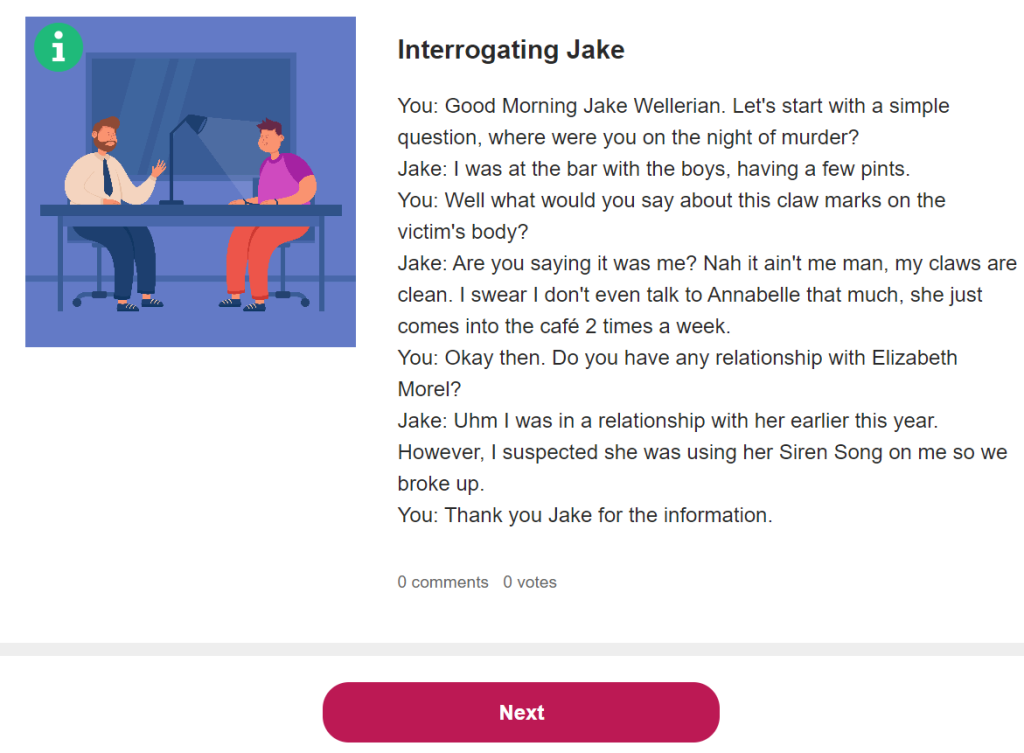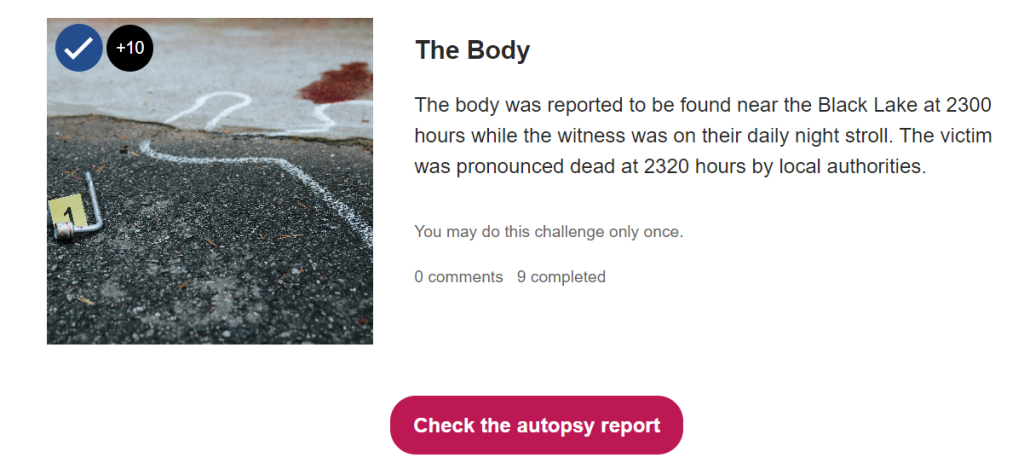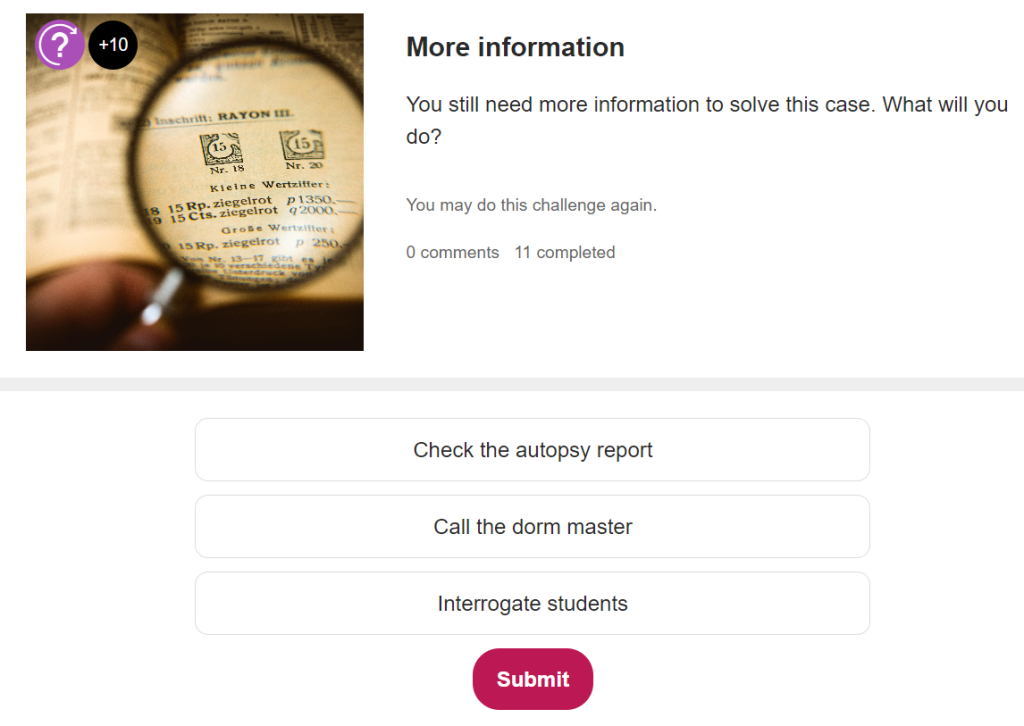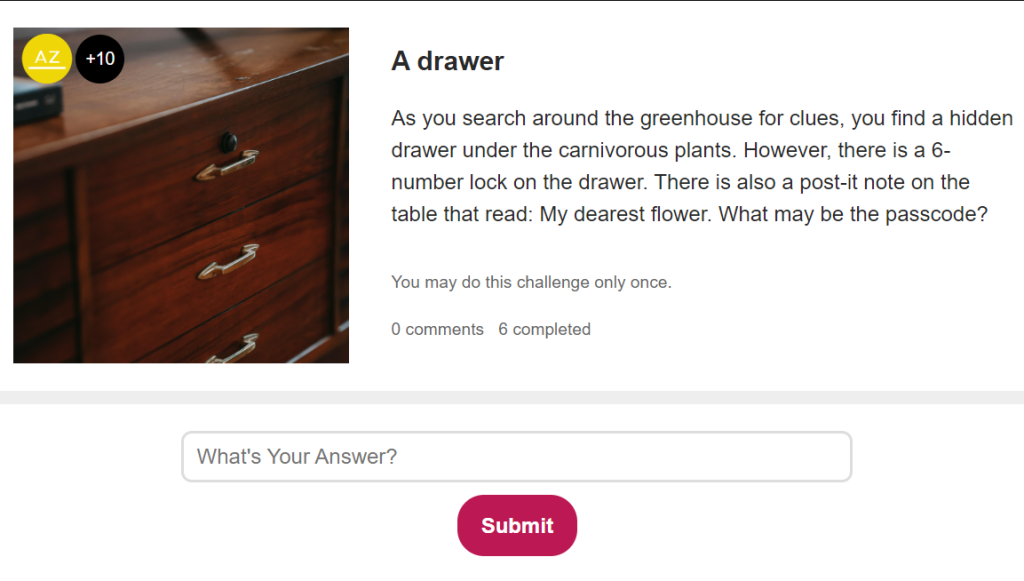[GUEST POST] Sherlock Who?
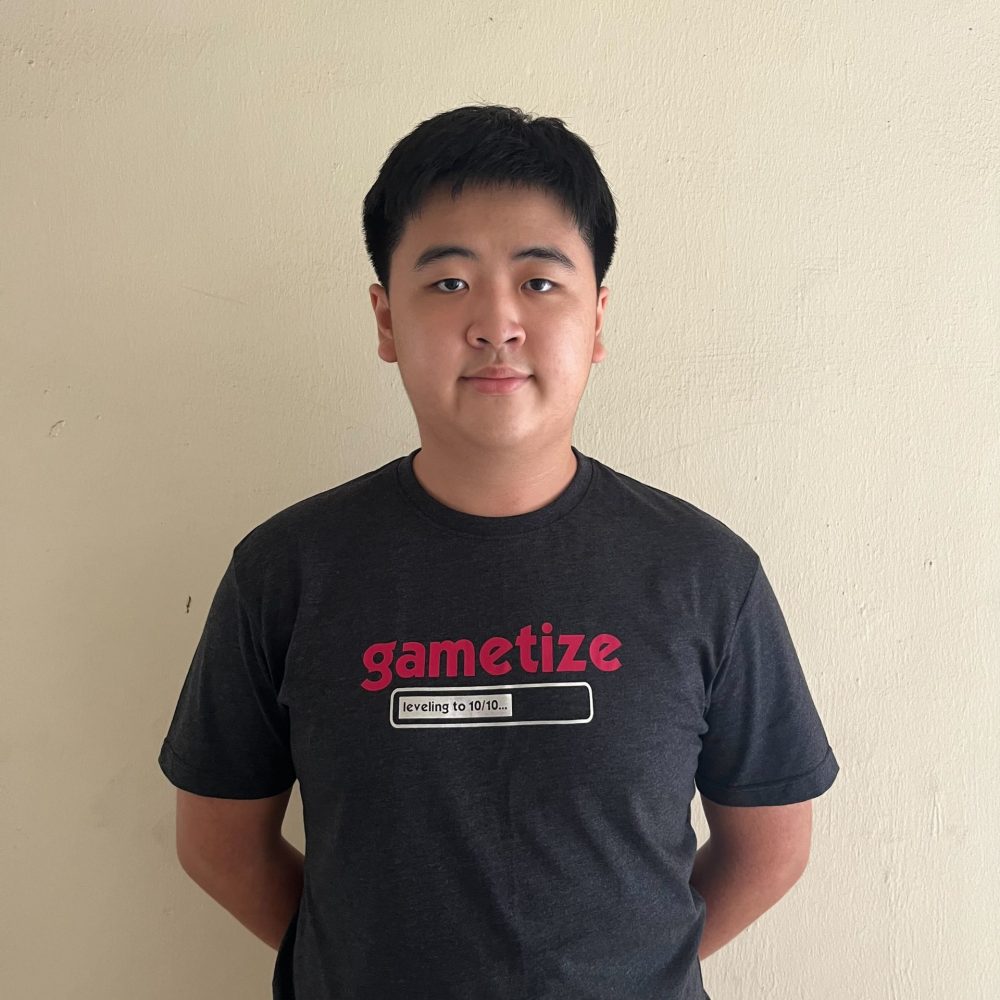
Introduction
Sherlock Who? is an action-packed and thrilling mystery game where you play as a local detective who is trying to solve a case and prove your worth as a Master Detective.
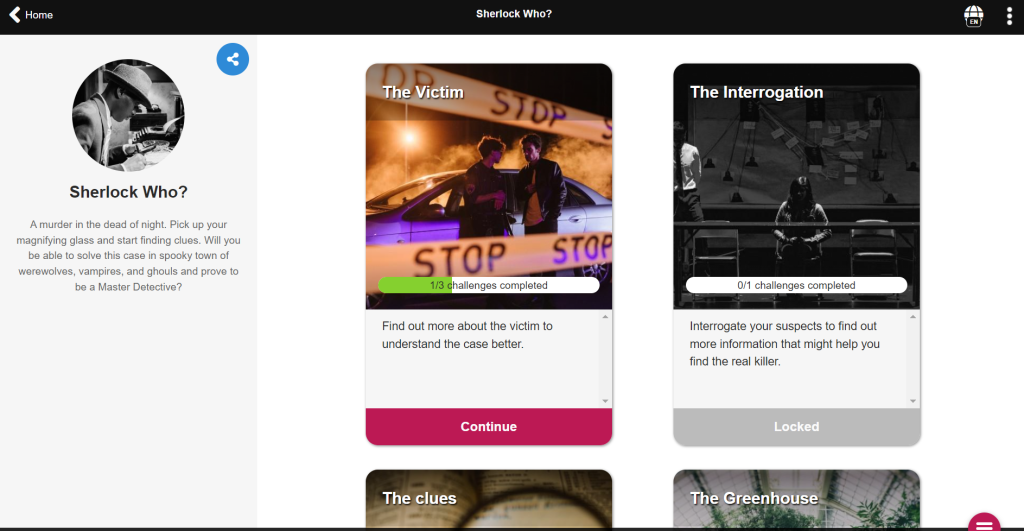
Ideation Phase
I was intrigued by the idea of crime and mystery when I watched the highly popular Netflix show, Wednesday, before starting this project. I was also fascinated by one of the projects done by one of the mentees from last year, A Criminal on the Loose. I drew inspiration from both of them for this game to give the players a sense of suspense and curiosity while solving this case.
For those who have not watched Wednesday, here’s a quick rundown of the plot (Spoiler-free).
The daughter of the extremely famous fictional family, The Addams Family, Wednesday, joins a new school of mythical humanoid creatures with fantastical abilities. However, the town where the school is located has recently been the crime scene of several murders with an unknown killer and Wednesday suddenly finds herself wrapped up in all of this mess. Now, Wednesday has to solve this murder mystery to find out her fate.
My game is similar to A Criminal on the Loose, however I put my own spin on the narrative by putting the game in a fantasy setting with mythical creatures such as werewolves, vampires and sirens, like in Wednesday. This adds an interesting twist on the typical murder mystery narrative. I didn’t follow the idea of being a criminal as I mainly wanted to focus on the detective and mystery aspect. I felt that sticking to 2 topics only can be quite restricting when it comes to creating the game. Working with more topics allows for more freedom when designing the game and allows me to categorise the challenges into different sections of the story, making the narrative flow more smoothly.
I also decided to ramp up the difficulty level to make the game not only fun but also challenging. I did this by adding a fixed answer challenge which can only be solved by those who are meticulous with the evidence given. I will go into more details about the feature below in the game features section.
Desired Outcome and Target Audience
Through this game, I aim to immerse the player into the role of a detective to solve this murder mystery through conventional means such as checking the crime scene, interrogating suspects, and finding evidence.
This game reward players who are attentive and meticulous when going through the game. Just like in an escape room, players must check every nook and cranny and take in every piece of information, even if it may seem unimportant.
Game Features
In my first game, as I was trying to familiarize myself with the game mechanics, I tried to make use of the flashcards and as many of the different types of challenges available, such as the quiz challenges and the fixed answer challenges.
Since my game is narrative-based, the use of flashcards helpedd to flesh-out the narrative and give the game depth by giving the player essential information about the game, such as evidence found at the crime scene and the interrogation sequences.
I used the Confirmation and Quiz challenges to help move the narrative forward and give the story a good flow. These challenges act as links between the flashcards to simulate a scene-by-scene movement through the story without abrupt jumps between flashcards, allowing the player to easily follow along with the storyline without getting confused. By clicking the button as shown below, the player registers that they have just created an action, thus immediately absorbing the information on the button and would naturally move to the next piece of content, moving the narrative forward. As the game is narrative-based, a good narrative flow is essential to keeping the player curious and intrigued to find out more about what happens next.
The use of these challenges to move the story forward gives the player a break from the paragraphs of information shown by flashcards, which can be quite boring and may turn players away from playing the game. These challenges also tease the next piece of content in the next topic, challenge, or flashcards which stimulates curiosity, motivating players to move on to the next topic.
I also made use of the fixed answer challenge to mimic a locked drawer which players have to unlock to gain important evidence in order to solve the case. I feel this may be the hardest part of the entire game and it really tests players’ attention to detail and their problem solving skills.
Visuals
I also added eye-catching pictures and icons to accompany the various topics which adequately matched the theme and topic of the game. As the icons are the first thing the players see when they play the game, a good picture can easily attract players. The pictures also immediately set the mood as most of the topic pictures are dark and gloomy which creates a mysterious atmosphere for the player.
Achievements and Rewards
I included enticing achievements and rewards for players to unlock. This can act as further encouragement for players to put effort into completing the game. The achievements act as milestones that players can aspire to achieve once they complete a certain part of the game. For example, Master Interrogator is achieved once a player interrogates all the suspects. I also added a reward of 2 escape room tickets to give players an opportunity to further their interest in mysteries and improve their skills of problem solving and critical thinking.
Disclaimer: The reward is only a placeholder as the game is only a demo.
Challenges
I think the hardest part of creating this game is creating an interesting narrative where players will be hooked to the story. Even though I had a rough storyline in mind, I had to kink out the details while working through the game. It was hard to create an original storyline with elements of a traditional murder mystery such a sense of discovery and suspense.
However, after I worked out how the story should flow, the process of creating the game mechanics was quite easy as the Gametize platform is quite simple to work with as every challenge has a specific role which can easily implement different elements of my story.
Conclusion
I hope that people who play my game will have fun and be immersed in this mystical and mysterious world while finding a runaway murderer.
So, are you craving for a mystery of a lifetime? Pick up your magnifying glass and look for evidence in this world of creatures and ghouls.




